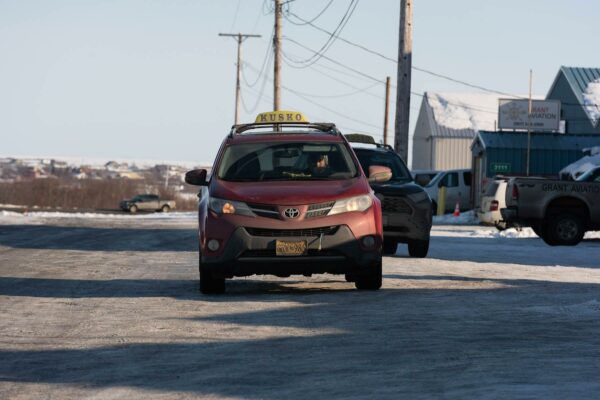
A Korean cab driver in Bethel was shot in the face earlier this month and survived. The attack marks the third Korean cab driver in Bethel to have been shot or violently assaulted in the last 15 years.
On July 5, Myoung Keun Lee, a 67-year-old Korean cab driver, was shot in the face during a late-night shift. The person who shot Lee then stole his cab and left him lying on Ptarmigan Road in Bethel before a passerby noticed him and called the police. Bethel Police Chief Richard Simmons said that officers are pursuing several suspects, but have not made any arrests related to this case.
Simmons said that Lee was in stable condition as of July 9, and was in Seattle undergoing facial reconstruction surgery. KYUK was unable to reach Lee for comment.
The recent attack has left other Korean cab drivers in Bethel reeling.
“I’m very afraid now because the same thing could happen to me,” said Bethel cab driver Geon Soo Choi.
There’s a history of violence against Korean cab drivers in Bethel. In 2006, Ju Young Joung, a 41-year-old Korean cab driver, was also shot in the face, but Joung died. No one was ever charged for his death.
In 2012, another Korean cab driver, 54-year-old Young Suk Chong, who went by “Suzi”, was stabbed to death. Her body was found in the back of her cab. A man was charged for her murder and sentenced to 45 years in prison.
During the COVID-19 pandemic, racism and violence against Asians have surged across the nation. Simmons said that there’s no evidence to suggest this most recent shooting was a racially motivated crime.
Lee drove for Bethel cab company Kusko Cab. Jung Chul Mun, who is Korean, co-owns Kusko Cab and also drives for the company. Mun said only the shooter would know whether the attack was driven by racism.
Cab drivers are more likely to be killed by homicide while on the job than workers in any other profession. They are four times more likely to be killed at work than police officers, according to a study published by the Bureau of Labor Statistics in 2000.
Add in a dangerous work environment in Bethel, where the violent crime rate is five to six times higher than the national average, according to data from the FBI, and the odds of Bethel cab drivers getting hurt are high.
In Bethel, the bulk of cab drivers are Korean. After the shooting on July 5, Mun, co-owner of Kusko Cab, said that he’s been warning his drivers to be more careful than normal. Even in situations when passengers stiff drivers the cab fare, he’s advising them to avoid conflict.
“I think if I provide good service to passengers, I’ll probably be safe,” said Simon Lee, who drives for Alaska Cab.
Other drivers are taking themselves off the road to protect themselves. Mun said that his drivers are skipping the late night/early morning shift to avoid intoxicated passengers.
Mun is concerned that there won’t be enough drivers on the road to cover Bethel’s demand for cabs. He said that 35% of Kusko Cab’s drivers already quit during the COVID-19 pandemic due to a fear of getting sick. Now that one of his drivers was shot, he’s worried that there will be more attrition. In a small town where someone who shot a cab driver is still on the loose, Mun said, “Who’s going to want to drive cabs?”




